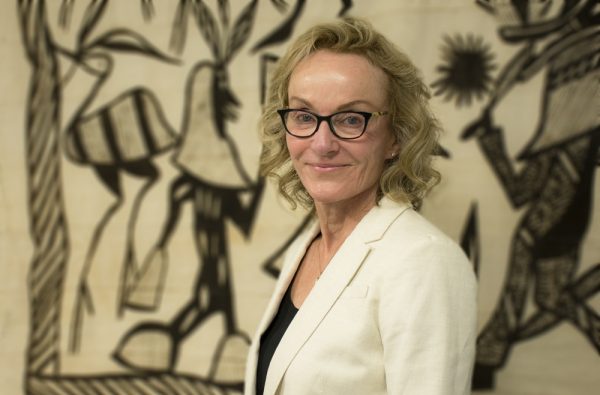Indigenous People Vital for Understanding Environmental Change
Research led by Kathleen Galvin and others shows how local knowledge can help manage ecosystems and wildlife
Todd Bates, Rutgers University
Additional content by Joshua Zaffos
Grassroots knowledge from Indigenous people can help to map and monitor ecological changes and improve scientific studies, according to new research published by a group of scientists, including Kathleen Galvin, Professor in the Department of Anthropology and Geography, and Head of the CSU Africa Center.
The study, published in the Journal of Applied Ecology, shows the importance of Indigenous and local knowledge for monitoring ecosystem changes and managing ecosystems. The team collected more than 300 indicators developed by Indigenous people to monitor ecosystem change, and most revealed negative trends, such as increased invasive species or changes in the health of wild animals. Such local knowledge influences decisions about where and how to hunt, benefits ecosystem management and is important for scientific monitoring at a global scale.

“Changes in biodiversity and ecosystem services directly impact and are felt by Indigenous and local communities,” said Galvin, a lead author on the study who conducts interdisciplinary human-ecological research in Africa. Galvin and her work examines pastoral land use, conservation, climate variability, dryland adaptation strategies, and household decision-making under environmental uncertainty. “Partnerships between Western scientists and local communities is needed to conserve biodiversity and, ensure actions and goals are relevant and meaningful to all.”
Indigenous and local knowledge is the practical information that people use to manage resources and pass on between generations. Such knowledge benefits conservation initiatives and economies that depend on natural resources in vast areas of the world.
“Many Indigenous peoples have unique abilities to notice ecosystems altering before their eyes by using local indicators, like the color of fat in hunted prey or changes in types of species found together,” added lead author Pamela McElwee, an associate professor in the Department of Human Ecology at Rutgers University. “Scientists wouldn’t be able to perform these kinds of observations over the long run for many reasons, including costs and the remoteness of some areas. So Indigenous knowledge is absolutely essential for understanding the cumulative impacts of biodiversity loss and ecosystem degradation.”
The study follows the Global Assessment Report on Biodiversity and Ecosystem Services released last year by the Intergovernmental Science-Policy Platform on Biodiversity and Ecosystem Services (IPBES). Galvin was also a lead author on that report — which was the first global ecological assessment to use Indigenous and local knowledge as a source of evidence — and has additionally served on many U.S. National Research Council and National Science Foundation panels.
The new study, by researchers at many institutions who were part of the global assessment, provides background on how the report tapped into Indigenous knowledge systems and lessons learned. Working with these local sources of information in ecological research and in management requires a deliberate approach from the start, additional resources, and engagement with stakeholders reflecting diverse worldviews, said McElwee.
“Over three decades of working with Indigenous people in Africa has taught me that local communities have an enormous body of environmental knowledge and skill to deal with environmental change,” Galvin said. “But change is now occurring so rapidly and with unwelcome surprises that collaboration is essential to enhance biodiversity and ecosystem services and human well-being.”